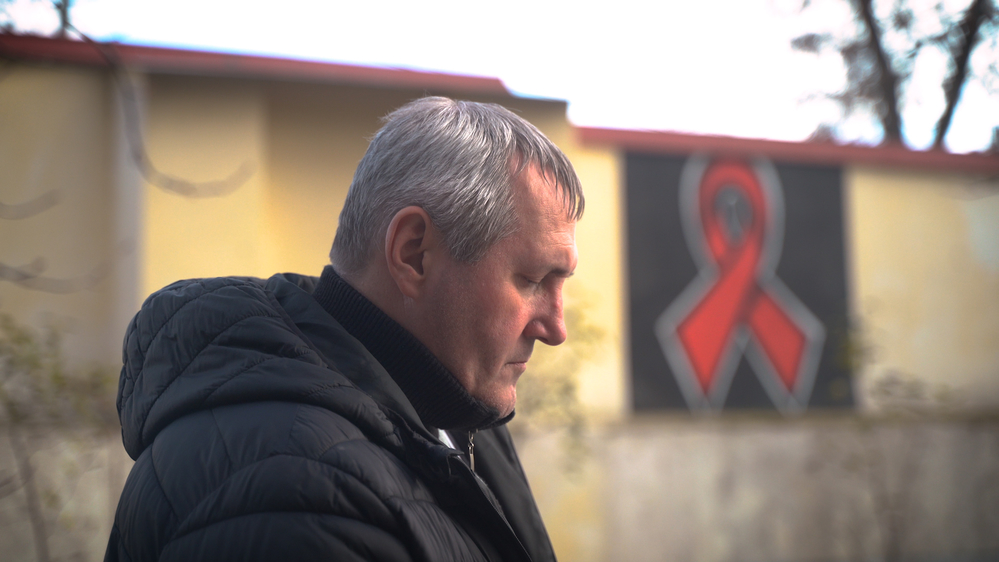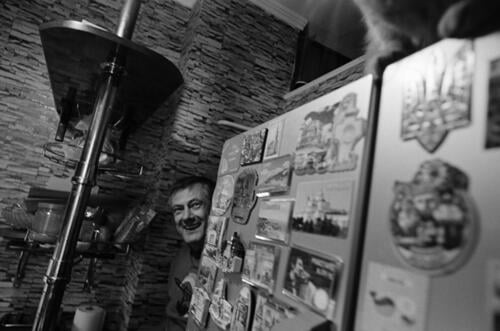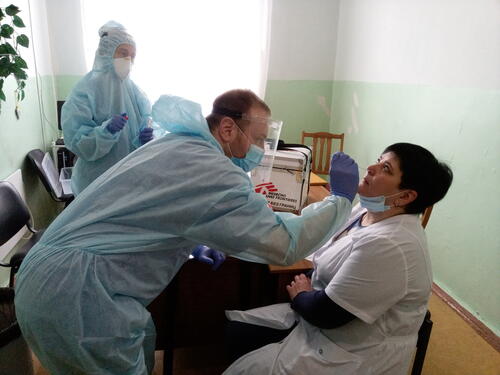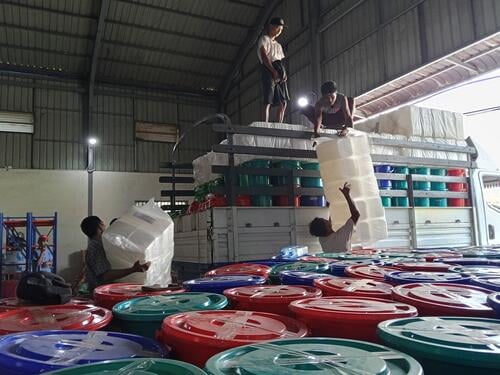Around 3.6 per cent of Ukrainians live with hepatitis C, well above the estimated European average of 1.5 per cent. Hepatitis C is a major cause of chronic liver disease globally.
The Mykolaiv region, in southern Ukraine, is one of the worst affected areas in the country, and also suffers from high rates of HIV and HIV-hepatitis C co-infections.
Three years ago, Médecins Sans Frontières (MSF) designed a model of cooperation with the Ministry of Health in Mykolaiv to use generic drugs to treat hepatitis C. It was the first time generic drugs for hepatitis C were used in the country. MSF provided not only medications, but also tests, laboratory equipment and supplies. This month, as goals were achieved, MSF is fully handing over the project to local health authorities.
Before the project began, patients faced hepatitis C treatments that could last from 24 to 72 weeks, with only a 50 per cent chance of success. This all changed when MSF began to provide a new hepatitis C treatment using the World Health Organization-recommended combination of daclatasvir and sofosbuvir. When taken together, these two medications are effective in treating all types of hepatitis C infection. The treatment takes between 12 and 24 weeks, has fewer side-effects, and reached a cure rate of almost 94 per cent in Mykolaiv.

Peer to peer educator in Mykolaiv
“Hepatitis C can be cured with highly effective treatment, but access to diagnostics and treatment remains limited especially for vulnerable communities,” evaluates Dr Nazgul Samieva, MSF Medical Coordinator in Ukraine.
Medications were provided to treat over 1,300 patients, of which around 1,150 have now completed treatment. Among our patients also were people living with HIV or undergoing opioid substitution therapy. To help them cope emotionally, MSF provided patients with psychosocial support throughout their treatment. Over 7,200 health education and counselling sessions were conducted by former patients hired and trained by MSF.
“My objective is to find a drive within the patient; a desire and motivation to undergo the treatment,” says Andriy, MSF peer educator. “My point of view is very important for doctors because I’ve had many problems in my life, including alcohol, drugs and HIV. So I have these points of contact with the patients, they trust me, and they open up to me,” he explains.
With recent COVID-19 preventive measures limiting the movement of people, our teams have been delivering medicines by post and offering support by phone to guarantee continuity of care for hepatitis C patients and to ensure that they have information about how to avoid COVID-19 infection.
MSF began working in Ukraine in 1999, and today MSF’s work in the country is focused on infectious diseases such as multi-drug-resistant tuberculosis and COVID-19.






